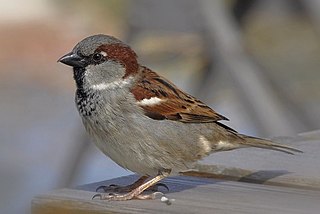Related Research Articles
In Greek mythology, Adrastus or Adrestus, , was a king of Argos, and leader of the Seven against Thebes. He was the son of the Argive king Talaus, but was forced out of Argos by his dynastic rival Amphiaraus. He fled to Sicyon, where he became king. Later he reconciled with Amphiaraus and returned to Argos as its king.

Diomedes or Diomede is a hero in Greek mythology, known for his participation in the Trojan War.
In Greek mythology, Tydeus was an Aetolian hero of the generation before the Trojan War. He was one of the Seven against Thebes, and the father of Diomedes, who is frequently known by the patronymic Tydides.

In Greek mythology, Oeneus was a Calydonian king. He introduced wine-making to Aetolia, which he learned from Dionysus and the first who received a vine-plant from the same god.

Ismene is the name of the daughter and half-sister of Oedipus, daughter and granddaughter of Jocasta, and sister of Antigone, Eteocles, and Polynices. She appears in several plays of Sophocles: at the end of Oedipus Rex, in Oedipus at Colonus and in Antigone. She also appears at the end of Aeschylus' Seven Against Thebes.
In Greek mythology, there were eleven people named Melanippus :

The house sparrow is a bird of the sparrow family Passeridae, found in most parts of the world. It is a small bird that has a typical length of 16 cm (6.3 in) and a mass of 24–39.5 g (0.85–1.39 oz). Females and young birds are coloured pale brown and grey, and males have brighter black, white, and brown markings. One of about 25 species in the genus Passer, the house sparrow is native to most of Europe, the Mediterranean Basin, and a large part of Asia. Its intentional or accidental introductions to many regions, including parts of Australasia, Africa, and the Americas, make it the most widely distributed wild bird.

Dinosaur classification began in 1842 when Sir Richard Owen placed Iguanodon, Megalosaurus, and Hylaeosaurus in "a distinct tribe or suborder of Saurian Reptiles, for which I would propose the name of Dinosauria." In 1887 and 1888 Harry Seeley divided dinosaurs into the two orders Saurischia and Ornithischia, based on their hip structure. These divisions have proved remarkably enduring, even through several seismic changes in the taxonomy of dinosaurs.

In Greek mythology, the Seven against Thebes were seven champions who made war on Thebes. They were chosen by Adrastus, the king of Argos, to be the captains of an Argive army whose purpose was to restore Oedipus' son Polynices to the Theban throne. Adrastus, although always the leader of the expedition against Thebes, was not always counted as one of the Seven champions. Usually the Seven were: Polynices, Tydeus, Amphiaraus, Capaneus, Parthenopaeus, Hippomedon, and Adrastus or Eteoclus, whenever Adrastus is excluded. They tried and failed to take Thebes, and all but Adrastus died in the attempt.

Mus musculus domesticus, the Western European house mouse, is a subspecies of the house mouse. Some laboratory mouse strains, such as C57BL/6, are domesticated from M. m. domesticus.

The Thebaid is a Latin epic poem written by the Roman poet Statius. Published in the early 90s AD, it contains 12 books and recounts the clash of two brothers, Eteocles and Polynices, over the throne of the Greek city of Thebes. After Polynices is sent into exile, he forges an alliance of seven Greek princes and embarks on a military campaign against his brother.
In Greek mythology, Polyphontes was the son of Autophonus, a warrior who figured in Polynices' war to regain the throne of Thebes from his brother, Eteocles.
In Greek Mythology Alcibie was one of the Amazons, a race of warrior-women. She fought with their queen, Penthesilea to the Trojan War.

Leucocytozoon is a genus of parasitic alveolates belonging to the phylum Apicomplexa.

The origins of the word domesticus can be traced to the late 3rd century of the Late Roman army. They often held high ranks in various fields, whether it was the servants of a noble house on the civilian side, or a high ranking military position. After serving under the emperor for a certain duration, the Domestici would be able to become leaders themselves and potentially command their own regiment of legionaries in the military. Relatively, the most important offices were the “Comes Domesticorum” also known as, “Commander of the Protectores Domestici,” and “Comes rei Militaris” or General.

Welcome to Thebes is a 2010 play by Moira Buffini. It premiered on 15 June 2010 in a production at the Olivier Theatre of the Royal National Theatre in London directed by Richard Eyre.
In Greek mythology, the name Maeon or Maion may refer to:
In Greek mythology, the name Chromis may refer to:

The Tydeus Painter was an ancient Greek vase painter working in the Corinthian black-figure style. His real name is unknown. He was active during the Late Corinthian phase ; his works are dated to about 560 BC.

Papilio tydeus is a species of swallowtail butterfly from the genus Papilio that is found in the Moluccas.